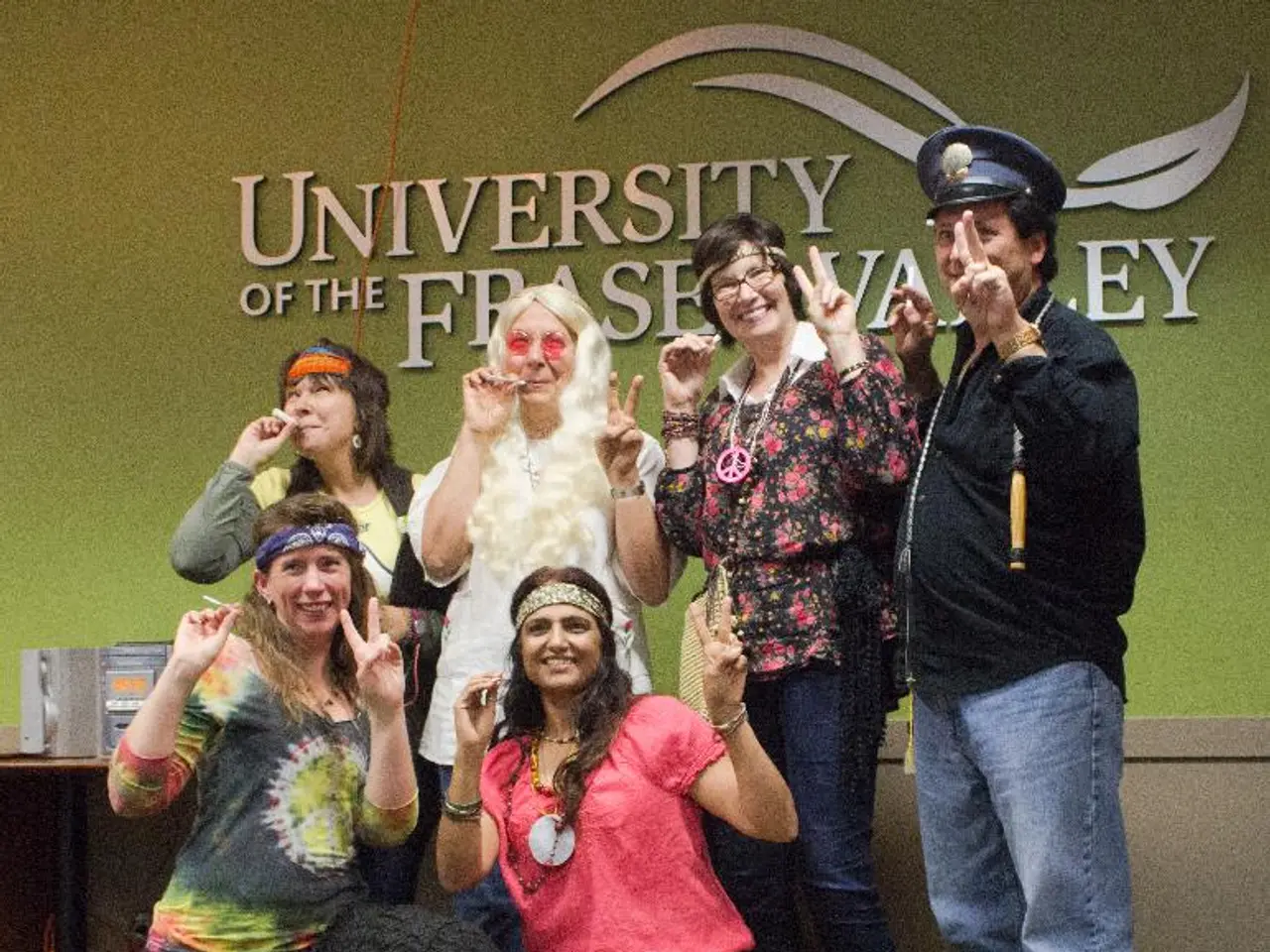Strategies for Solo Contentment: Enhancing Mood and Locating Resources for Help
In today's fast-paced world, feelings of loneliness and isolation can creep up on us. But there are numerous resources and strategies available to help us combat these feelings and foster a more connected life.
Online Support
Crisis Text Line, Herd, Mental Health Is Health, Daily Strength, and Anti-loneliness all offer online support groups, resources, and counseling programs for those experiencing loneliness. These platforms allow individuals to connect with others who are going through similar experiences, providing a sense of community and understanding.
Volunteering
Volunteering, whether online or in person, can offer a chance to connect with others and support a meaningful cause. Volunteer Match and local community projects provide opportunities for individuals to get involved.
Self-care
Prioritizing self-care is crucial in maintaining a positive relationship with oneself. This can include taking time for relaxation, reading, listening to music, learning a new skill, and planning things to look forward to.
Physical Activity
Regular exercise, such as cycling, team sports, aerobic workouts, and gym workouts, can improve both physical and mental health. A 2018 systematic review found that as little as 10 minutes per day may help increase happiness levels, while 45 minutes of exercise 3-5 times per week is particularly beneficial for mental health.
Spending Time in Nature
Spending time in nature and green spaces can also improve well-being. Whether it's a walk in the park or a hike in the woods, connecting with the natural world can provide a sense of peace and tranquility.
Practicing Gratitude
Practicing gratitude can help support feelings of happiness. By focusing on the positive aspects of life, we can shift our focus away from negative feelings of isolation.
Nurturing Relationships
Strengthening existing relationships can help people feel a greater sense of connection when spending time alone. Face-to-face interactions have been shown to decrease loneliness across age groups and provide social support.
Consulting Healthcare Professionals
Reaching out to a healthcare professional, such as a doctor, therapist, or counselor, can be helpful for those who find it hard to be alone or who are experiencing loneliness or poor mental health. Mental Health America provides advice for finding a counselor to talk with.
The Lonely Hour Podcast
For those seeking a deeper exploration of themes of loneliness and solitude, The Lonely Hour podcast offers insightful discussions and personal stories.
Key Mechanisms
The key mechanisms for reducing loneliness include meaningful engagement through activities and hobbies, prioritizing self-care and breaks from social media, physical activity and time outdoors, nurturing existing relationships, practicing gratitude, consulting healthcare professionals, and joining support groups. These strategies support loneliness reduction by enhancing satisfaction with both social and solitary meaningful activities, improving emotional and physical health, and creating protective social connections tailored to individual preferences and life contexts.
Conclusion
Remember, being alone and being lonely are not the same. By taking up a new hobby, volunteering, prioritizing self-care, taking breaks from social media, staying physically active, getting outdoors, nurturing relationships, practicing gratitude, consulting healthcare professionals, and joining support groups, we can help people feel better about being alone and reduce loneliness by fostering meaningful engagement, enhancing mental and physical well-being, and promoting social connection in ways that suit individual needs.
Activities such as volunteering, learning a new skill from home-and-garden or education-and-self-development courses, and engaging in outdoor therapy like hiking can contribute to personal growth and help combat feelings of loneliness.
Incorporating regular physical activity, whether it's cycling, team sports, or gym workouts, can offer both mental and physical health benefits, reducing feelings of isolation and fostering a healthier lifestyle.
Practicing gratitude, nurturing relationships, and spending time in nature are lifestyle choices that can help support feelings of happiness and well-being, serving as effective tools in combating loneliness.




